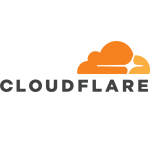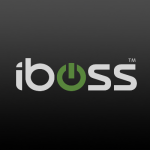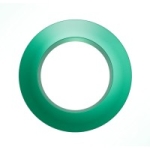What is our primary use case?
I had implemented Cisco Umbrella at a previous company. I'm now working at another company where I'm not using this solution. We've got another solution here.
The policy of the company was to make sure all outgoing traffic was sent through a filtering service, and OpenDNS, and then Cisco Umbrella, was chosen for that purpose. Once it was taken over by Cisco Umbrella, it had far more capacity and far more functionality written into it.
In terms of the deployment model, I just used Cisco services. It would be through Cisco's private cloud. My site wasn't big enough. So, I didn't deploy the Cisco service on-premises.
How has it helped my organization?
It was really valuable to me in protecting the outgoing data of the company. It was good for reporting. Every computer had the Cisco Umbrella program installed. So, I had good reporting on any issues related to outgoing data, such as whether there were any phishing or dodgy sites connected. It protected that part of the business.
A combination of Cisco ASA, Cisco Umbrella, and Cisco AMP connecting to the SecureX portal gave me all-around security for the site because they all reported into a central reporting server. If there were any issues, I could have got full details, even if a crypto locker attempt was made. I never had any security incidents that I'm aware of. So, it was a very effective tool.
It kept itself updated. So, I didn't have to worry about continuing to push out new installs of the program.
I felt safe, supported, and secure, and so did the owner of the company. It worked silently in the background, and no one else really knew it was working on their computers. When we went into lockdown with COVID, I was happy knowing that all the computers that left the business had the app installed and were going to be functioning securely. We got no viruses and no issues on any computer on the network, which is quite unusual. A lot of other people or a lot of other companies I spoke to reported that they had quite a few issues.
It worked 100% in terms of applying and maintaining network connectivity consistently across all workplaces. We never had any issues. The only issues we had were when sites might have been blocked because they were suspected of being within a filtering group. It would report back to the user and say, "This site is currently blocked by your administrator. Please click this button. An email will be sent to your administrator, and they can resolve the issue." I would then get the email, and I'd look at the site, and then I'd release it through whitelisting. It was very user-friendly in that regard.
It certainly helped to remediate threats more quickly because I was able to stay free of any virus outbreaks. It definitely locks out that part of the transmission where the virus will go out and attempt to download a package.
It worked silently and didn't use too many computer resources. It was really silent in its operation on the network. It had a really good impact on me. I'd love to put it in my new company, but we've gone down a different pathway. That's being resolved through Office 365 now, and I'm not proposing to change that technology.
What is most valuable?
I wanted to ensure that all outgoing traffic went through Cisco AMP servers. So, if we did get a crypto locking incident or any malicious sites that wanted to direct traffic to particular websites, they would be unable to do that because they would be blocked by the Cisco Umbrella DNS servers.
It also did website filtering for preventing access to porn sites and gambling sites. It had all other standard features. It had a good section where you could whitelist and blacklist websites.
I was able to implement it myself. It was really easy to install. You could install it on a server locally if you want to. If you have the biggest site, you would do that, but for my site, it was just directing all the traffic out through the Cisco Umbrella DNS. It was really handy. When the owners of the company went overseas, I knew that they would be secure because even if they were not on the company network, they would still go through the Cisco Umbrella servers. It was a complete solution for protecting the company with outgoing data.
The other useful feature was that if we were to get a malicious actor onto a server or service running somewhere, it would still have to go out through the Umbrella servers. So, it would more likely be blocked through there. It had multiple features that were super handy.
What needs improvement?
It had the ability to do a lot of app control. So, every single app that went through that portal was registered, but there is a general issue with the whole app control. As soon as you add a mobile phone to your network, all of the apps get registered through the system, and you can approve, reject, or just let them go through. When I looked at it, it was impossible to manage app control. There was just so much data. I didn't apply that service because I just didn't have the time to manage it. It would be good if there was a way to categorize applications. However, that's dangerous too because you can be turning off an app in a group because you don't know what it is doing. It could be a vital company app. So, App control is the main area in which they need to keep working.
For how long have I used the solution?
Originally, Cisco Umbrella was called OpenDNS. I have used OpenDNS and Cisco Umbrella for about six years.
What do I think about the stability of the solution?
It is very stable. I never had any issue with it.
What do I think about the scalability of the solution?
It is highly scalable. You don't even have to install it on your computers. You just change your DNS, and it'll start to work internally immediately. I never had any issues with performance or anything like that. I'm sure it would suit larger companies as well, but larger companies would install their own Umbrella service on their own systems and deal with the capacity that way. So, it is very scalable.
How are customer service and support?
Their support is good. They always got back to me and answered issues. They showed me how to do my own debugging. They were always very professional and helpful. I would rate them a 10 out of 10.
How would you rate customer service and support?
Which solution did I use previously and why did I switch?
We previously used proxy servers, but I wanted a more modern interface, and that's why I chose Umbrella.
How was the initial setup?
It was super easy. I'm a general IT person, and I was able to deploy it. I read the documentation, changed some settings, changed the DNS on my servers, and then rolled it out to the team. It was a pain-free implementation.
What about the implementation team?
I deployed it. It was pretty intuitive. I didn't have a consultant help me. I was able to implement the solution myself and manage it myself. That's a really good rating for an application. There are different systems you get to manage these days, and you can't have training on all of them. Because I rolled it out, I knew I rolled it out properly, and the system was working effectively. It was good. I liked using it.
What was our ROI?
The return on investment was that we kept the company secure. Nothing happened, which is the ultimate return on investment.
What's my experience with pricing, setup cost, and licensing?
It was a little bit expensive on a per seat basis, but the company I was running was only a midsize Australian company, and it was a reasonable budget per computer for that system.
It started off being a free product, and then Cisco bought it, and it went to a reasonable price. I was using Cisco AMP as well. So, my per computer cost was reasonably high, but for a small company, it was within an acceptable level.
Not having reviewed other systems, I can't tell how they compare, but I know that when you do special security licensing with Microsoft, it is on par. So, it is probably standard within the industry.
Which other solutions did I evaluate?
At the time, we were using OpenDNS, and then OpenDNS went to Cisco Umbrella. Because we'd had such success with OpenDNS, we just stayed on with the product. So, I didn't evaluate any other products at that time.
What other advice do I have?
It is just another layer that you need to wrap around your company to keep it safe unless you could just shut off that possible attack vector from external parties.
To leaders who want to build more resilience within their organization, I would say that they've got to keep doing it, and they've got to keep working on it. I'm constantly looking for better ways to secure the company. Cisco Umbrella would be a very useful addition to their set of tools.
A part of my plan in the long term was to implement the full suite. I never got around to that, but it was really good to know that I could go right down to app-level control. It was a very successful product, and I'd certainly recommend it to any business looking to just add another layer of security around their company.
In terms of providing a single pane of glass management, security does involve multiple systems, and I could log them all into the Cisco SecureX system. From there, I could get my single point where I could resolve issues with viruses, et cetera. So, in itself, it was a single pane of glass for DNS protection. It was fine, but I don't think there is ever going to be a single pane of glass anywhere. You're always going to have many different systems that you're using, but overall, it had a lot of features. It did the job it needed to do.
I would rate it a 9 out of 10. It is just app control that I want them to develop more.
Disclosure: My company does not have a business relationship with this vendor other than being a customer.





















